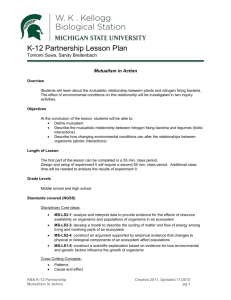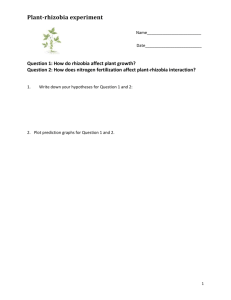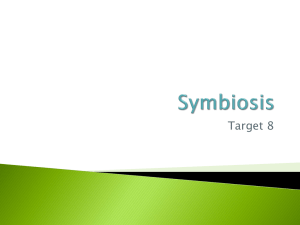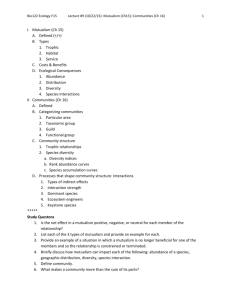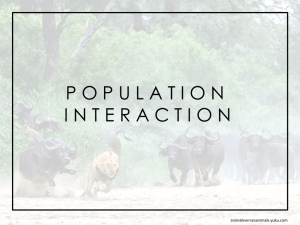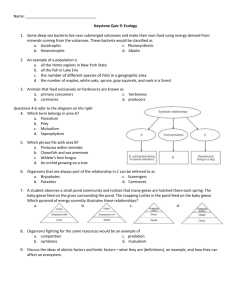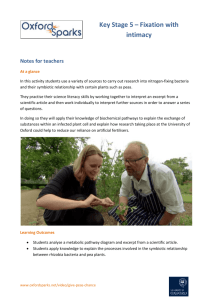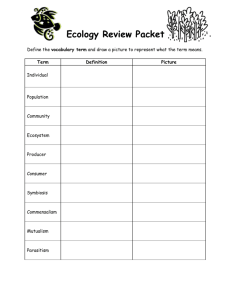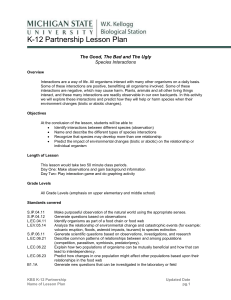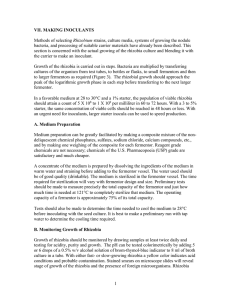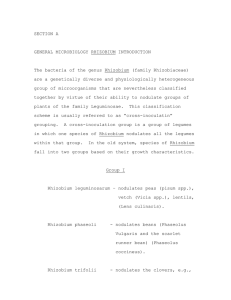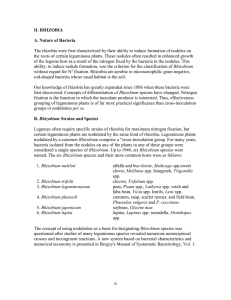the-good-bad-ugly
advertisement
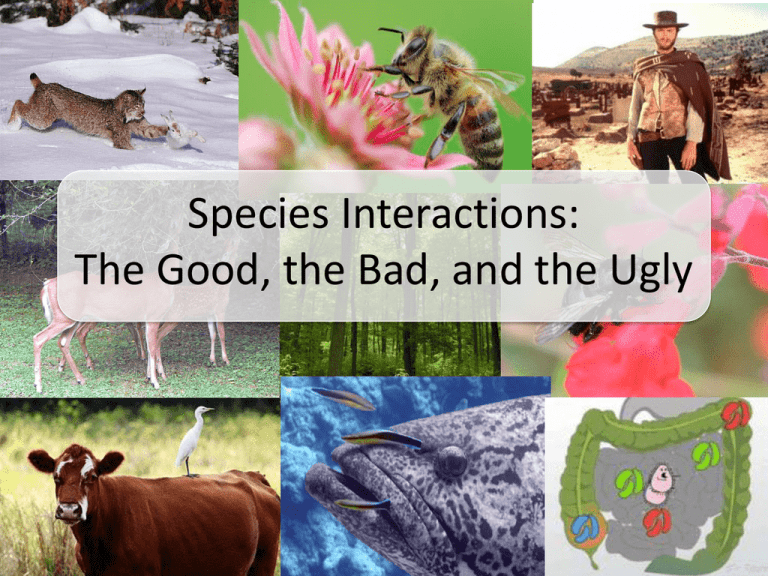
Species Interactions: The Good, the Bad, and the Ugly Types of species interactions • Positive • Negative • Neutral Positive species interactions • Mutualism – Both species benefit by interacting with each other Ant-Acacia mutualism Mutualism http://www.australiangeographic.com.au/news/ Mutualism http://coglab.hbcse.tifr.res.in/teacher-resources/ Mutualism http://mathotter.wordpress.com Mutualism Negative species interactions • One species benefits while the other species is harmed http://www-rohan.sdsu.edu Negative interactions (herbivory) http://en.wikipedia.org/wiki/Herbivore Negative interactions (competition) Negative interactions Strangler Fig Nectar Robbing Neutral species interactions • Commensalism – One species benefits while the other is unaffected Plant-bacteria-herbivore experiment • Do herbivores prefer plants with rhizobia or plants without rhizobia? Materials • 10 legume plants (such as beans, peas, clover), in 10 separate pots • Rhizobia (bacteria) inoculant (purchase online) • 20 slugs or other insect herbivores (aphids, beetles, caterpillars) • Old fish tank or large plastic bin, screen or netting to put over top Instructions 1. Plant legumes 3 weeks prior to conducting experiment. Inoculate half of the 10 plants with rhizobia bacteria. + rhizobia - rhizobia Instructions 2. Once plants are mature, put them all into an old fish tank or clear plastic bin and put 2 herbivores on the soil surface in each pot. Make sure pots are close enough to touch. 3. After 1-2 days, estimate the percent of damage to each leaf 4. Record data and analyze results (graphing activity)
